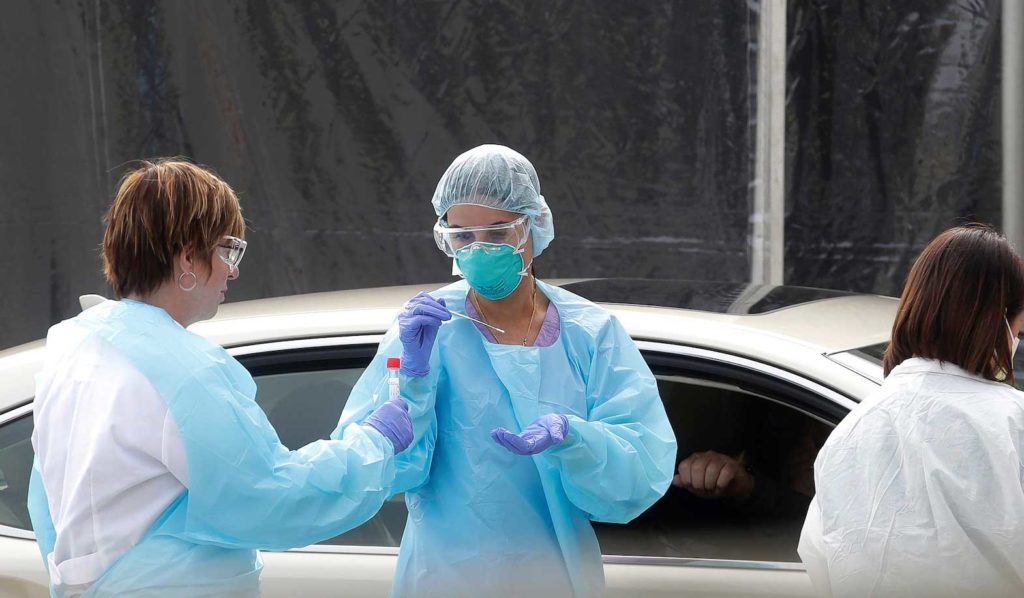California has conducted over 1 million virus tests

Health care personnel test a person in the passenger seat of a car for coronavirus at a Kaiser Permanente medical center parking lot in San Francisco. (Jeff Chiu / AP Photo)
SACRAMENTO – As a result of California scaling up its Covid-19 testing capacity in recent weeks, Governor Gavin Newsom reported that more than 1 million diagnostic tests for the virus have been conducted statewide.
Just over a month ago, the Governor set an ambitious goal to increase testing to 25,000 tests a day by the end of April – and daily testing has averaged more than 35,000 in the past few days.
“Ramping up our testing capacity is critical as we begin modifying our stay at home order,” said Governor Newsom. “In addition to standing up more than 80 new testing sites across the state in under-served communities, soon Californians will be able to get tested when they pick up their prescriptions at some pharmacies across the state.”
Ensuring the state has sufficient capacity to test for Covid-19 and ability to conduct contact tracing when outbreaks surface are key indicators in the state’s gradual efforts to modify the stay at home order, as laid out in the Resilience Roadmap.
Newsom also announced that the California Department of Consumer Affairs and State Board of Pharmacy will allow pharmacists to collect specimens for Covid-19 tests and order tests for consumers. The specimens will be delivered to and processed at public health, university or commercial labs.
The state has also created a new “Medi-Nurse” line available for Medi-Cal patients without a health plan (fee for service) and uninsured Californians. The line – 1-877-409-9052 – is available 24/7 for Covid-19 concerns or for general medical issues. Those who have health insurance may visit covid19.ca.gov and use the telehealth zip code finder to access their health insurance plan’s telehealth and nurse help lines.
Increasing testing is one of the six critical indicators guiding California’s Resilience Roadmap. California’s six indicators for modifying the stay-at-home order are:
- The ability to monitor and protect communities through testing, contact tracing, isolating, and supporting those who are positive or exposed;
- The ability to prevent infection in people who are at risk for more severe COVID-19;
- The ability of the hospital and health systems to handle surges;
- The ability to develop therapeutics to meet the demand;
- The ability for businesses, schools, and child care facilities to support physical distancing; and
- The ability to determine when to reinstitute certain measures, such as the stay-at-home orders, if necessary.

